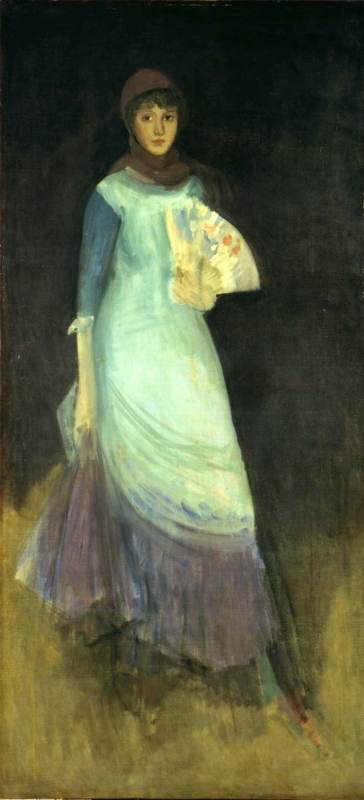Home > Catalogue > Browse > Harmony in Blue and Violet: Miss Finch << >>
Technique
It is on a comparatively fine canvas. It has a light coloured ground-layer, possibly light grey. In many parts of this painting, the weave is obvious, due to the very thin ground layer and the use of diluted paint. Whistler's frequent practise of rubbing or washing down the paint after a day's work is especially visible in the lower part of the canvas where the pigments barely stain the canvas. There are other signs of alterations. The figure was originally further to right. The black background was put in after the figure was painted.
Conservation History
The picture is in good stable condition, although it may have had some damage, and been repaired and retouched a long time ago, and the varnish, though thin, has yellowed. The canvas has been relined with a similar fine canvas, and this has emphasized irregularities in the weave.
Originally, Harmony in Blue and Violet: Miss Finch had a more purple hue, which is still present under the rebate of the frame where it was protected from light. This means that the original paint used by Whistler was not colour-fast, which implies it could have been a poor quality or cheaper product. Good and colour-fast red lakes were expensive. 1
By 1891 Whistler was critical of aniline dyes. He railed against the vivid colours of works in the Société Nationale des Beaux-Arts:
'The Impressionist analines (I can't even spell it) seem to have been spilled over all the palettes - Even the man Dannat, ... has mauve and ultramarine running into the huge legs of his Spaniard.' 2
William Turner Dannat (1853-1929) exhibited Spaniard at 1st exhibition, Société Nationale des Beaux-Arts, Champs de Mars, Paris, 1891.
Frame
207.0 x 104.2 x 6.2 cm.
Last updated: 22nd October 2020 by Margaret






